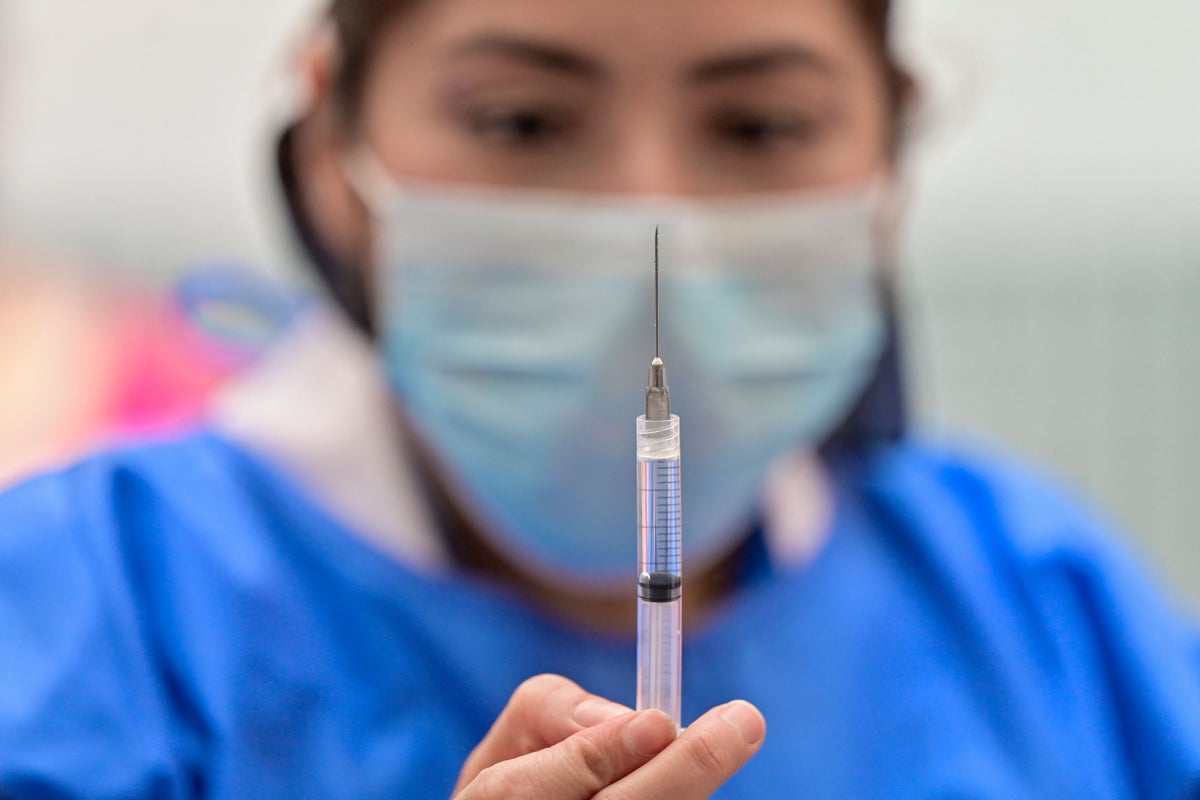
The UK is facing its fifth wave of Covid infections, experts have warned, as cases hit 1.8m in the latest weekly figures, a 23 per cent climb week-on-week.
More worryingly, hospital admissions have increased 31 per cent, climbing at a higher rate than the last Omicron revival back in March.
“The new wave is now starting,” said Professor Christina Pagel during a recent briefing by the independent Scientific Advisory Group for Emergencies (Sage).
“We will have a new wave of infections this month. Now hopefully it won’t be as high as the previous two waves and might be lower. But we can’t count on that and either way we are going to see more people becoming infected.”
The situation first became apparent in the aftermath of the four-day public holiday to celebrate the Queen’s Platinum Jubilee, when a 43 per cent spike in coronavirus cases was reported. It is feared that other major summer gatherings such as Glastonbury, Notting Hill Carnival and the Edinburgh Festival could all amount to super-spreader events if proper precautions are not taken.
The surge is reportedly being driven by the BA.4 and BA.5 sub-variants of Omicron, the strain that spread rapidly across the UK in December 2021 and January 2022 before gradually falling away.
These latest incarnations were first discovered in South Africa in January and February respectively and are effectively the grandchildren of Omicron.
They feature three mutations to their spike proteins, which it is feared enable them to retrain their attack on human lung cells.
That means they have more in common with the earlier, more dangerous Alpha and Delta variants than the highly transmissible but milder Omicron, which targeted upper respiratory tract tissue.
Potentially, these mutations might also enable the sub-variants to sidestep antibodies from past infections or vaccination and therefore overcome immunity.
While the situation in the UK is clearly a cause for concern, inviting fears of a return to masks and social distancing or even stricter measures, what are Covid case numbers currently like around the rest of the world?
Dr Tedros Adhanom Ghebreyesus, director-general of the World Health Organisation (WHO) warned on Wednesday that Covid infection rates are rising in no fewer than 110 countries around the world as a result of the two Omicron sub-variants, which the body has been monitoring since April.
The WHO’s dashboard, which reports case numbers over the last seven days, currently places the US at the top of the league table globally (understandably, given its population size) on 691,764 new cases over the last week, followed by Germany on 529,032 and Brazil on 374,445.
Next up is Italy on 363,196, France on 339,181, China on 316,349, Australia on 202,339 and Spain on 118,421.
Only then does the UK rank on 108,521, followed by Japan (105,434), India (99,433) and Portugal (75,874).
The Johns Hopkins University’s global map gives a longer view, ranking countries by the number of new Covid cases they have seen after the past 28 days.
It too finds the US at the top on 2.98m infections over the last month, followed by Germany on 1.68m, Taiwan on 1.65m, France on 1.31m and Brazil on 1.18m.
Italy again features highly, reporting 922,012 new infections over the last four weeks, while Australia (769,458), Portugal (471,278), Japan (431,558), Spain (407,774) and the UK (368,568) again make an appearance.
Back in Britain, Professor Adam Finn, a member of the government’s Joint Committee on Immunisations and Vaccinations, has already called for a new round of booster jabs to be made available by September to combat waning immunity, more than six months on from the last major vaccine campaign just before Christmas.
“The booster protection does fade, particularly against milder infection and after a while against severe infection as well. So that’s a disappointment for us all with regards to these vaccines which have otherwise been very valuable in terms of the pandemic,” he told BBC Radio 4’s Today programme on Monday.
“But we are going to need to provide boosters, particularly to people who are at risk getting very seriously ill if they get it later in the year.”







